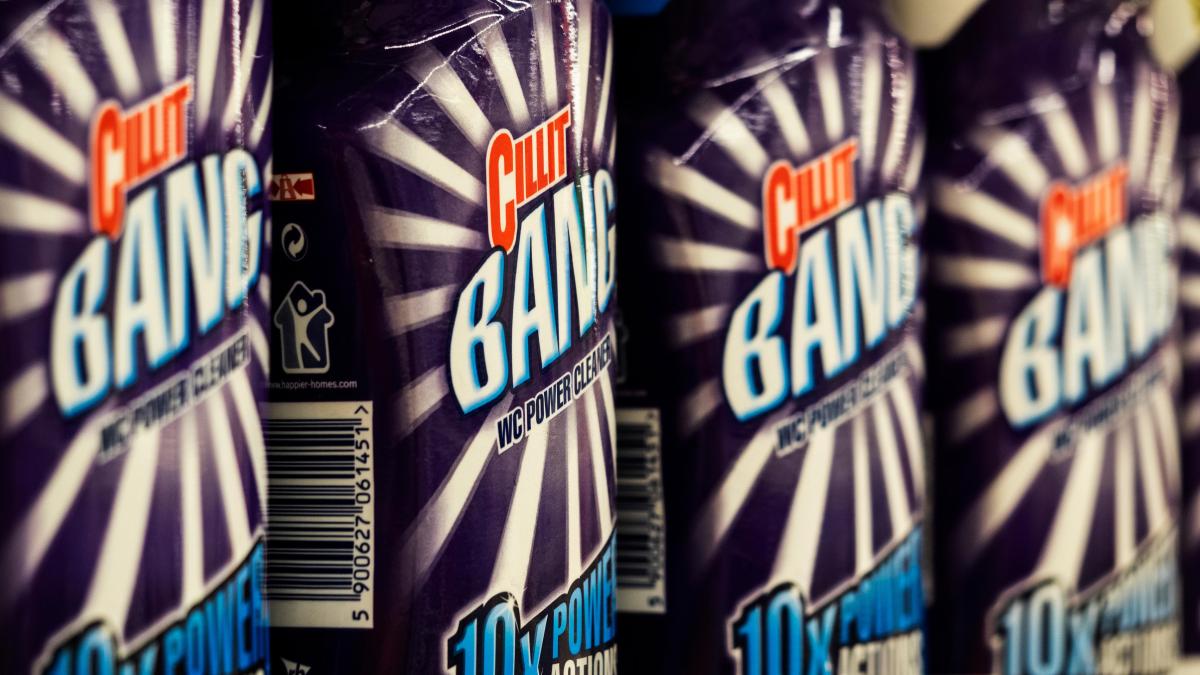Reckitt Benckiser has agreed to sell a majority stake in a portfolio of homecare brands for up to £3.6 billion, including debt, to the private equity firm Advent International as part of a shake-up of one of the world’s biggest consumer healthcare groups.
The FTSE 100 company said it would retain a 30 per cent stake in the portfolio, which includes Air Wick fresheners and Cillit Bang cleaners.
Reckitt had announced plans in July last year for a possible sale of the “non-core” brands alongside a strategic review of Mead Johnson, its infant formula business. The portfolio totals about 80 brands across 70-odd markets.
Kris Licht, 48, Reckitt’s chief executive, had warned in April that the sale could be delayed beyond the end of the year by “difficult” market conditions.
He said on Friday, however, that the company was “executing our strategic plan at pace”.
He said the divestment “represents a significant step forward in unlocking the substantial value in our business”, adding: “This moves Reckitt towards becoming a simpler, more effective world-class consumer health and hygiene company and it will enable us to focus on a core portfolio of high-growth, high-margin powerbrands.”
The divested homecare brands portfolio generated about £2 billion of net revenue last year, 14 per cent of the group’s total, and adjusted operating profit of £490 million.
The sale price is equivalent to a multiple of 7.7 times the portfolio’s profit for the 12 months to the end of March.
Following the deal with Advent, which is expected to close by the end of December, Reckitt plans to return excess capital to shareholders through a $2.2 billion special dividend. The payout will be on top of a share buyback programme that Reckitt has already begun.
The company will now focus on its core business of 11 power brands, which generate more than 80 per cent of its core £10.3 billion net revenue. They include Finish, Dettol, Durex, Mucinex, Vanish, Veet and Nurofen.
The group is based in Slough, Berkshire, and formed through the merger of Reckitt & Colman and Benckiser of the Netherlands in 1999.
The restructuring of its portfolio follows shareholder frustration with the performance of Mead Johnson, acquired for $18 billion in 2017, stake-building last year by the US activist Eminence Capital and the appointment of Sir Jeremy Darroch, the former Sky boss, as chairman.
Shares in Reckitt closed up 30p, or 0.6 per cent, at £50.12 on Friday, extending gains to about 14 per cent over the past year.
Analysts at Jefferies told clients that the divestment was “done but disappointing”.
“This hurdle had to be crossed to kick-start the strategic move to be just ‘core Reckitt’. But the net value of just £3 billion and lack of clean exit, given 30 per cent retained stake, compares to recent press speculation of about £4 billion enterprise value for the asset and hopes of £6 billion at the start of the process. Eyes now on litigation latest.”
The review of the future of Mead Johnson has been complicated by costly safety litigation in the US, which the company is defending.
Infant nutrition is next hurdle
With Reckitt Benckiser having agreed to divest a portfolio of homecare brands sooner than anticipated, attention in the City switches to a more protracted exit from its larger infant nutrition business and to the longer-term prospects of its remaining core health and hygiene brands.
While the price and structure of the disposal to Advent International underwhelmed analysts, it clears one of a number of hurdles complicating the outlook for the Slough-based FTSE 100 group.
The next restructuring issue is the future of Mead Johnson, the infant nutrition business that has been under strategic review since July last year. Mead Johnson was acquired for $18 billion in 2017 in a deal more expensive than all of Reckitt’s other deals combined but has proved troublesome.
Reckitt’s options are limited by the uncertainty from litigation in the United States relating to Mead’s specialised formula Enfamil and to Similac, that of Abbott Laboratories, Reckitt’s New York-listed competitor.
The companies reject any “causal link” between their products and necrotising enterocolitis (NEC), a serious bowel disease, and their position has been supported by US health authorities.
Analysts at Jefferies noted on Friday, following the Advent deal, that a pre-trial hearing for Reckitt’s co-defendant Abbott is scheduled for Monday before a potential landmark case next month.
“This litigation needs to be resolved ahead of a then hoped-for sale of nutrition,” Jefferies said, adding: “Who is a viable suitor for that operation remains very unclear.”
In an attempt to divert investor attention to the prospects for Reckitt’s remaining health and hygiene business, senior executives held a seminar in London in May to showcase “core Reckitt” and its portfolio of 11 “power brands”. They include Durex, Vanish and Nurofen.
Reckitt is targeting like-for-like sales growth of 4 to 5 per cent a year from them.
Summing up sentiment, analysts at RBC told clients the Advent deal “should be a boost to management’s credibility, quite a lot of which was resting on successful execution of this deal, and enable investors to focus more closely on the core Reckitt — although the NEC litigation remains an unwelcome distraction”.
